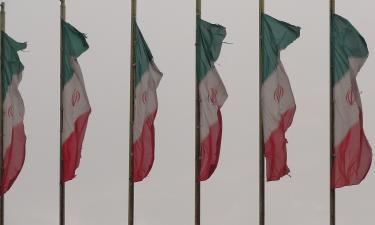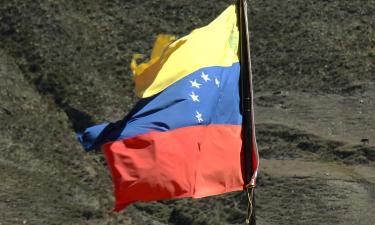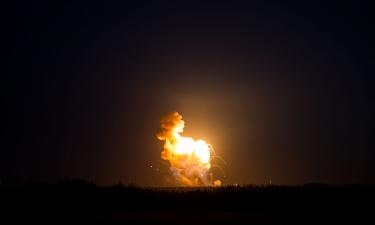Libya: Scratching beneath the surface...
One week after the Day of Rage, and scratching beneath the surface of the myriad of events coming out of Libya, one week after we asked in this column Who or What is behind the "uprising" against Colonel Muammar Gathafi, the first answers begin to appear...and interesting ones they are.
 The Libyan "uprising" appeared a little strange from the beginning, due to the fact that it was presented as another wave of Middle East protest against corrupt regimes which held the people down, siphoned off the resources and put nothing back in return. While that was true in Tunisia and Egypt, where the "Revolutions" were concentrated in the capital cities, Libya's centre of unrest was way out East in the tribal lands of Cyrenaica. Odd...
The Libyan "uprising" appeared a little strange from the beginning, due to the fact that it was presented as another wave of Middle East protest against corrupt regimes which held the people down, siphoned off the resources and put nothing back in return. While that was true in Tunisia and Egypt, where the "Revolutions" were concentrated in the capital cities, Libya's centre of unrest was way out East in the tribal lands of Cyrenaica. Odd...
Cyrenaica is home to an extremely complex grouping of peoples and tribes, an ethnic reality so easily and quickly exploited in so many other areas of the Arab-speaking world. Around the second largest city in Libya, and capital of Cyrenaica, Benghazi, reside the Arafah, the Darsa, Abaydat, Barasa, Abiid, Awaqir, Fawakhir, Zuwayah, Mugharbah, Majabrah, Awajilah and Minifah.
So question one is: Why didn't the Libyan "uprising" start in the capital city, Tripoli, and why didn't the "mainstream (bought) media" report the fact that this is not the first or second or third time that Benghazi has been the epicentre of ethnic tensions and separatism?
Question two is why has there been an absence of reporting on colonel Gadhafi's social welfare schemes, which if anything have made Libyans lazy and not destitute?
Colonel Muammar Gathafi's social and welfare programmes in Libya are far greater than those implemented in neighbouring countries. Modern infrastructures have sprung up in recent years which aim to attract investment and bring added wealth and sustainable development to the citizens of Libya; Gathafi's literacy programme has seen universal education become reality and since he took power in 1969, the life expectancy of Libyan citizens has risen by twenty years while infant mortality has decreased sharply.
Gathafi represents the control of Libya's resources by Libyans and for Libyans; literacy reached ten per cent of the population when he came to power. Today it is around 90 per cent. Women, today, have rights and can go to school and get a job. The standard of living is around 100 times greater than it was under the rule of King Idris I. The conclusion, therefore, is that Gathafi's Libya is a different ball game from Tunisia and Egypt.
Question three is where the EnoughGaddafi.com posters and signs are coming from and why the webmaster from this "organization" is listed on Movements.org as the "Twitter" to be followed and question four is what the role of the US State Department is behind Movements.org. The answer to this question is that it helped launch the movement in 2008.
Question five is what have the National Front for the Salvation of Libya (NFSL) and the National Conference for the Libyan Opposition (NCLO) been doing behind and scenes. The answer is a great deal and question six is where they are based. The answer is, respectively, in Washington and London. These organizations are coordinating teams of "information providers" operating deep within Libya. At another time, they would have been called saboteurs, terrorists and agents provocateurs.
Question seven is what is NATO doing concentrated off the Libyan coast and is there any veracity in the allegations that this organization is illegally enforcing no-fly zones? If yes, this is an act of terrorism. And connected to this, do NATO personnel have any hand in the acts of sabotage and terrorism taking place within the country? Are the "mercenaries" all brought in by the Gathafi government or are they brought in from outside by elements wishing to destabilise Libya and to seize its oil? Are they perpetrating acts of sabotage and murder, just to blame events on the Gathafi administration? Are some of them special forces sent by the backers of NFSL and NCLO member groups?
Question eight is why the Libyan Government news agency site, JANA, has been offline for three days: https://www.jananews.ly and who or what is behind this apparent act of cyber terrorism. This is a deliberate attempt to manipulate the news by those who attempt to try mass information and shape public opinion. Those who try to forge an independent path, like Al Jazeera, are soon assimilated as it is clear to see.
Question nine is why the mainstream media announced loud and clear that Colonel Gathafi had fled the country, while he was all the time in Tripoli, and a lot of it in the streets among crowds of cheering supporters.
Question ten is why the same media did not report on Gathafi's direct appeal to the parents and elders to make sure their children were not caught up in a wave of vandalism, taking them off the streets and warning that the country has a penal code which includes the death penalty for acts of treason and terrorism against the State.
Question eleven is what happened to the Libyan Ambassador in Washington, apparently blocked from attending the UN building while a carefully prepared aide took his place and gave a version of events which the Ambassador later denied.
These questions and their answers do not provide an insight into Libya's future because the fight at the moment is a pendulum which can swing either way. Reports in the mass media are of Colonel Gathafi losing more and more territory, while reports from inside Libya point towards the lines being clearly drawn and only some areas being temporarily held by rebels. In the absence of clear information, who knows where the truth lies?
Time will tell, but these questions may help to document the events of the past week, giving an insight into the dark forces involved. For sure, they are not only from inside Libya.
Timothy Bancroft-Hinchey
Pravda.Ru
Subscribe to Pravda.Ru Telegram channel, Facebook, RSS!





